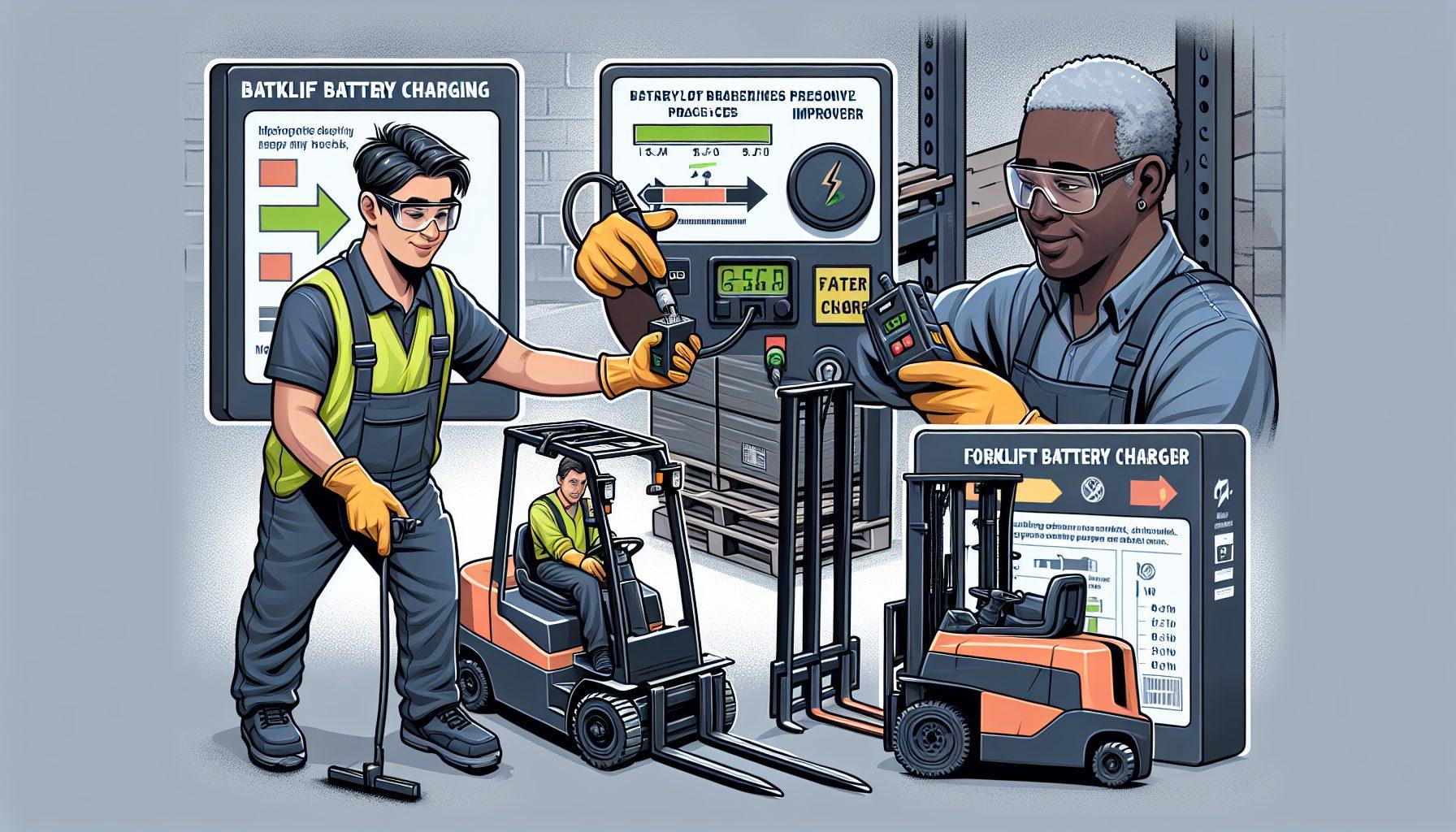Are you looking to improve the efficiency and effectiveness of your warehouse operations? One area that often gets overlooked but plays a critical role in smooth operations is forklift battery charging practices. Optimizing your forklift battery charging practices can have a significant impact on productivity, cost-effectiveness, and safety within your warehouse. In this article, we will explore some key tips on how to improve forklift battery charging practices.
The Importance of Forklift Battery Charging Practices
Before we dive into the tips, let’s first understand why forklift battery charging practices are crucial. Forklifts are an essential piece of equipment in warehouses, and their batteries power their operations. Without properly charged batteries, forklifts may experience reduced performance, leading to decreased efficiency and productivity. Additionally, faulty battery charging practices can also result in increased operating costs due to wasted energy and premature battery replacements.
To ensure optimal performance and longevity of your forklift batteries, it is essential to implement best practices for charging. Let’s now explore some tips to help you improve your forklift battery charging practices:
1. Create a Charging Schedule
Establishing a regular charging schedule is crucial to ensure that your forklift batteries are always ready for use. Create a schedule based on your operational needs and the runtime of your forklifts. It is recommended to charge batteries during non-operational hours to avoid disruptions in workflow. By adhering to a consistent charging schedule, you can avoid depleted batteries and ensure a seamless workflow each day.
2. Implement Opportunity Charging
Opportunity charging is a practice where forklift batteries are charged during short breaks or downtime throughout the day. This can help extend the battery life and reduce the need for longer charging sessions. By strategically placing charging stations throughout your warehouse, operators can quickly charge their forklift batteries during moments of inactivity. This practice can significantly improve productivity as there is no need to wait for a forklift battery to be fully charged before resuming work.
3. Invest in High-Quality Chargers
The quality of the charger used can have a direct impact on the performance and lifespan of your forklift batteries. Investing in high-quality chargers that are specifically designed for forklift batteries can help optimize the charging process. These chargers often come with advanced features such as temperature control and automatic shut-off when the battery is fully charged. Using such chargers can help prevent overcharging and overheating, ensuring the longevity of your forklift batteries.
4. Train Operators on Battery Maintenance
It is essential to educate and train your forklift operators on proper battery maintenance practices. This includes guidelines on how to safely connect and disconnect batteries, how to monitor battery charging levels, and what signs to look out for indicating potential battery issues. Proper training can help operators understand the importance of following charging protocols and taking care of batteries, ultimately reducing the risk of damage and prolonging battery life.
5. Regularly Inspect and Maintain Batteries
Regular inspections and maintenance of forklift batteries are crucial to identify any potential issues early on and prevent costly breakdowns. Create a checklist that includes inspecting battery connections for corrosion, checking water levels, and testing battery voltage and capacity. By implementing a proactive maintenance routine, you can address any battery-related issues promptly and ensure the optimal performance of your forklifts.
Implementing these tips can significantly improve your forklift battery charging practices, leading to enhanced productivity, cost-effectiveness, and safety within your warehouse. Remember, HCO Innovations specializes in warehouse optimization solutions, including forklift fleet power management. For further assistance and guidance on optimizing your forklift battery charging practices, visit our website today!

